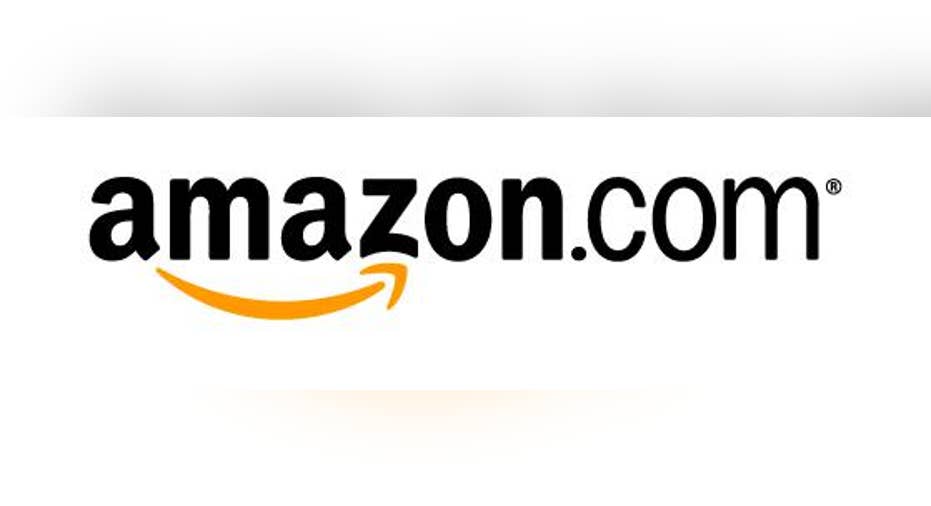Amazon Takes Aim at FedEx and UPS

Image source: Amazon.
To quote the hip-hop duo Young Gunz, e-commerce giant Amazon.com simply "can't stop, won't stop" in its quest to dominate the future of online retail.
In slightly more than two decades, Amazon has blossomed from a one-man start-up operating from a garage in Seattleto one of the largest publicly traded companies in the U.S. whose revenue just topped $100 billion for the first time over the past 12 months. Suffice to say, it's kind of a big deal.
However, Amazon's legendary tenacity remains as alive as ever. The company continues to create opportunities where its competitors overlook them, as a recent move from the company perfectly exemplifies.
Amazon's air freight ambitions Earlier this year, reports surfaced that Amazon was kicking the tires of the air freight industry in hopes of creating a partnership to lease as many as 25 freight transport aircraft. Fast-forward to today, and Amazon has officially reached an agreement with air logistics firm Air Transport Services Group to lease as many as 20 Boeing 767 planes.
The news was well-received by at least one party. Air Transport Service Group's shares rose more than 20% when the deal was announced last week. As part of the deal, Amazon will receive warrants for as much as 20% of Air Transport Services Group's equity, which vest over five years at a strike price of $9.73. Air Transport Services Group's shares opened trading at $14.29the morning after the deal was announced.
The deal between Amazon and Air Transport Services Group could allow the e-commerce giant to directly control as much as 15%of its annual merchandise shipments, which serves as a sharp rebuke to Amazon's longtime shipping partners UPS and FedEx . The company has sought to distance itself from UPS and FedEx in recent years after delivery headaches during the 2013 holiday season led to a surge in customer complaints. According to reporting from The Wall Street Journal, some Amazon executives believe UPS's and FedEx's hub-and-spoke delivery network is becoming increasingly outdated in today's delivery climate. As such, investors in both FedEx and UPS should view Amazon as an increasingly hostile threat to both businesses.
Image source: Amazon.
The great disruptor Any way you slice it, this is unwelcome news for FedEx and UPS. In the near term, adding its own logistics and delivery arm gives Amazon added leverage in any negotiation it holds with the companies going forward. Totaling $4.2 billion, Amazon's shipping costs represented 12.5% of its Q4 sales, making it one of its fastest-growing line items. Given Amazon's infamous penchant for squeezing its business partners, it seems safe to assume the firm will use its newly strengthened negotiating hand to lower the rates its pays FedEx and UPS. However, this news should also serve as a fundamental threat to these shipping giants.
In recent weeks, newfound details of Amazon's plans to create a global delivery and logistics business have emerged. Much like AWS and third-party sellers on its site, Amazon hopes to leverage this global supply chain business, dubbed Global Fulfillment By Amazon, into a profit center that can subsidize its own shipping needs. This would in turn allow the company to lower its costs, which, according to the company's flywheel strategy, should help accelerate growth.
To be clear, Amazon's machinations here, both large and small, aren't necessarily a sign of the apocalypse for either FedEx or UPS. Even its global supply chain ambitions are unlikely to put either firm out of business. What's more, building out its global shipping network will take years of effort and investment. This won't come to pass overnight. However, thus far this year, Amazon has sent perhaps the strongest signal that it intends to eventually compete head-to-head with UPS and FedEx, a long-term competitive threat shareholders must understand.
The article Amazon Takes Aim at FedEx and UPS originally appeared on Fool.com.
Andrew Tonner has no position in any stocks mentioned. The Motley Fool owns shares of and recommends Amazon.com. The Motley Fool recommends FedEx and United Parcel Service. Try any of our Foolish newsletter services free for 30 days. We Fools may not all hold the same opinions, but we all believe that considering a diverse range of insights makes us better investors. The Motley Fool has a disclosure policy.
Copyright 1995 - 2016 The Motley Fool, LLC. All rights reserved. The Motley Fool has a disclosure policy.



















